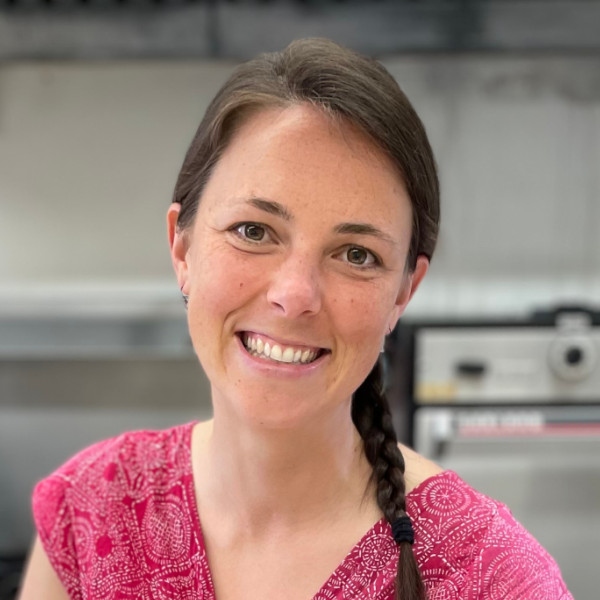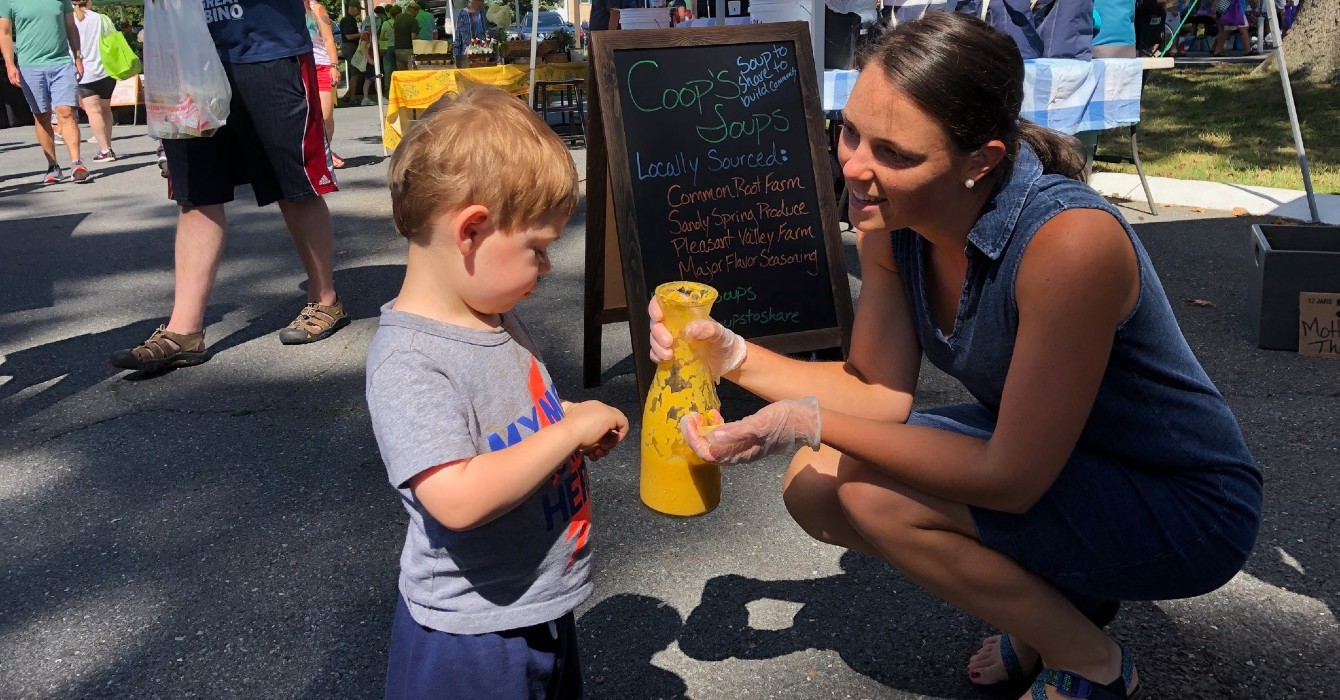I was at my farmers market stand selling Mason jars of homemade soup when Kimberly, one of my regulars, stopped by.
“You won’t be seeing me for a while,” she said. “I’m having surgery Thursday, and the doctor said I can’t do anything strenuous.”
“Is it serious?” I asked. I tied a label around a jar of Carrot Ginger soup, one of her favorites.
“Well, my breast cancer returned, and this time I’m having a mastectomy,” she said. I handed Kimberly the jar, processing what she had shared.
“I’m so sorry,” I said. “That sounds really hard.”
“It is. And apparently, going to the farmers market is strenuous,” she said, placing the jar in her bag. “I guess in some ways it is. There’s a lot of walking. Your soup particularly, while I love the glass jars, does get heavy.”
I remembered that Kimberly lived in a nearby assisted living facility.
“I can bring you soup,” I said. “I would be happy to drop it off.”
Kimberly’s eyes went big. “Well, that would be great,” she said. “Are you sure? Thank you so much.” I assured her I was sure. I jotted down my email and told her to reach out when she was ready for soup.
As a pastor who’s learning to run a business, even I recognize that personally dropping off products to customers is not the most efficient practice. Yet prioritizing meaningful connections with my neighbors is an important part of my business and ministry — and I love it. Sharing soup as a means of encountering God’s grace and experiencing collective belonging has become my ministry.
The business, called Coop’s Soups, is a Fresh Expressions ministry in the United Methodist Church. Our soups are sold at our local farmers market. This is where we practice recognizing our neighbors as bearers of God’s divine image and presence. In getting to know our neighbors, we get to know more of who God is and how God is calling us to live in that moment.
Coop’s Soups was originally designed to support Soup Church, a dinner church my husband and I started in our apartment. We began the service out of our own spiritual longing. The goal was to create a community that transcended the often-invisible rules of belonging that are passively enforced in traditional church communities. We wanted people to belong at Soup Church because they were divinely human, not because they checked the boxes for being formally recognized as members.
The people who came were not expected to give financially. Instead, we asked them to bring a dish and to contribute to the conversation. The service was built around the meal. I often served soup, because it was easy to add to if we had unexpected visitors.
Our friend Stanley loved the soup. “Cristin, you have to sell this!” he would say. I’d been learning about churches that were supported by missional social enterprise, so his cheerleading came at a good time. After four months of Stanley’s adamant enthusiasm, I decided to start a soup business to help fund the ministry happening in my apartment.
I started Coop’s Soups in 2019 with the idea that the business would be a taste of the community we were creating at Soup Church. I wanted to create moments of grace for people looking for a different kind of spiritual community so they could encounter and become aware of our ministry.
The business was designed to create community. We sold at the farmers market in Olney, Maryland, to meet people in person. We locally sourced our produce to support nearby farmers and to connect customers to seasonal eating. We encouraged customers to share their soup, extending dignity, compassion and love to those with whom they broke bread — and, in the process, growing in deeper intimacy with God’s love.
Our label says, “Soup to share is an awesome way to make friends and fight off loneliness.”
Each jar of soup sells for $16.50. In the beginning, we made different flavors determined by seasonal produce. There are now 12 rotating flavors; the fan favorite is Maryland Harvest, a vegetable blend with wild rice, seasoned with local favorite Old Bay.
A mostly volunteer crew makes the soup in the commercial kitchen of Salem United Methodist Church in Brookeville, Maryland. The pastor and I are colleagues and friends, and the congregation has graciously supported the ministry in the kitchen.
One community-building element we did not design for was the soup-making process itself. I was the only paid employee until last summer, when a soup customer donated money to hire Audrey, a high school sophomore who was already volunteering with us. Audrey and a handful of volunteers make the soup during the week and help with sales. She and all our volunteers are folks we met at the farmers market who work nontraditional work schedules.
Part of the routine in the kitchen is sitting down to enjoy a bowl of the soup we’ve just made. This practice of cooking and eating together has nurtured our collective sense of belonging.
While we still gather for Soup Church, what I found in practice was that the community-building aspects of the Coop’s Soups business — making the soup, catching up at the farmers market, customers sharing their soup with friends and neighbors — led to spiritual conversations, healing, and relationships of depth and honesty.
Community was happening, even without the dinner church service. I expected Coop’s Soups to be a taste of Soup Church but was surprised to discover that for many people, it ended up being enough.
As I discern the next faithful steps for my ministry, I am prayerful about how best to hand off the dinner church to a new leader. As for Coop’s Soups, while the business has made a small profit each year, I have hired a ministry coach to help grow the business and ministry. Does Coop’s Soups stay an LLC with a social mission, or does it transition to a nonprofit — and, in that case, what will the profit of Coop’s Soups support?
These questions will not get answered overnight, I know. I am in a season of sacred discernment. When the time is right, I trust that the burning bushes will be revealed. For now, I know that I stand on holy ground.
The weekend after I spoke with Kimberly, she emailed me: “I’m ready whenever you are. I would like two Carrot Ginger and one Maryland Harvest.”
When I arrived at her apartment, I was surprised by the art. Her living room was decorated with tapestries, woven baskets and small-scale sculptures that looked like they were made from clay. I had had no idea she collected folk art. Or that she had a cat named Roy.
“The art was my mother’s,” she said. “She would visit folk festivals and come home with vendors’ pieces.”
She invited me to sit down. Our conversation bounced around from art to our family trees to her successful surgery before coming back to Coop’s Soups.
“Last I saw you, you were saying you could see yourself opening a cafe?” Kimberly said.
“Yes, maybe one day,” I said.
“But you know,” I said, shifting in my seat, “I have learned through the development of Coop’s Soups to hold my visions lightly. I know now that the moment I think I’ve understood God’s vision, I’ve lost it. God’s presence really is in the process.”
On the drive home, I realized that while I thought I was just starting a dinner church, it turns out that God was revealing the farmers market as church too — an expanded experience of community that offers a practical way to love our neighbors as ourselves.

















